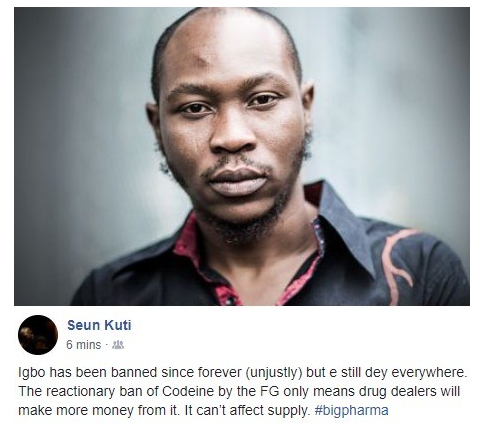Embattled pharmaceutical company, Emzor, on Tuesday insists that only one production site of its firm was shut contrary to claims that the entire company was shut by officials of National Agency for Food and Drug Administration and Control (NAFDAC).
In a series of tweets on its Twitter handle, Emzor said NAFDAC only sealed its liquid line. It said the rest of its manufacturing operation was going on normally.
The firm said NAFDAC sealed the line five days after carrying out an inspection on the site. It added that the regulator raised no issues at the time of the inspection, only for it to return later to close the line without explanation.
The tweet was in reaction to a press statement from NAFDAC that it has sealed off all the production lines of three pharmaceutical companies which were implicated in a BBC documentary on illegal codeine sale in Nigeria.
“Due to insufficient evidence gathered and apparent resistance to provide needed documents during our inspection on May 2, 2018, at the respective companies in Ilorin and Lagos, respectively, it has become necessary to shut down all the product lines of the three companies – Peace Standard Pharmaceutical Limited, plots 3 & 8, Adewole Industrial Estate, Lubcon Avenue, Ilorin, Kwara State; Bioraj Pharmaceutical Limited, 405 Kaima Road, Ilorin, Kwara State and Emzor Pharmaceuticals Ind. Ltd., Ajao Estate, Lagos. This is to allow for a full and comprehensive investigation. The three companies, therefore, remain closed,” the regulator said.
Emzor, however, denies the claim.
The company’s statement reads:
“NAFDAC have only temporarily sealed one of Emzor’s production sites, the liquid line. The rest of Emzor is still operating as normal. On Wednesday the 2nd of May NAFDAC inspected one of our production sites where Emzolyn with Codeine was made. There were given full access and our complete cooperation, with no issues raised at the time.
“On Monday the 7th of May, NAFDAC sealed the inspected site without giving us a reason nor an explanation of what the violation of the Good Manufacturing Practice (GMP) Code was and it will be wrong for us to speculate as to the reason why.
“Emzor continues to make good quality affordable medicines for the Nigerian public and the products are still available to buy. We believe in Emzor Wellocracy, unlimited wellness available to all and affordable by all.”
